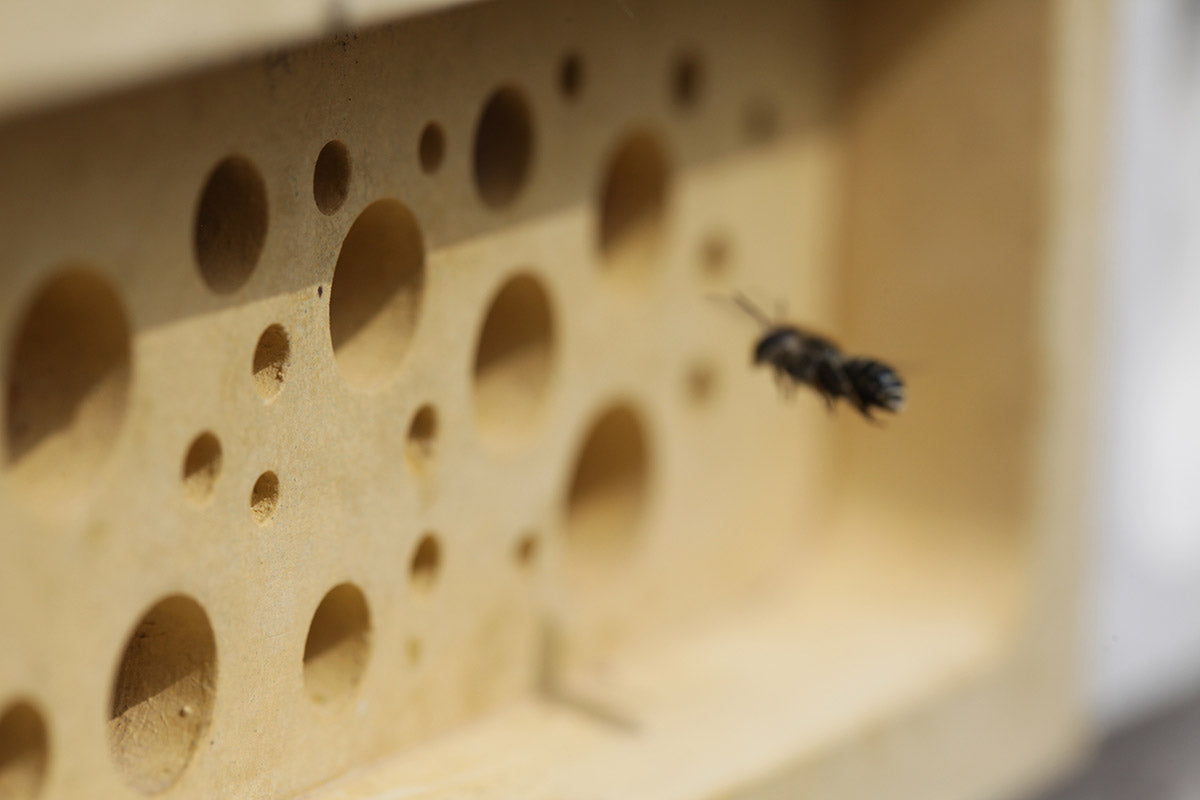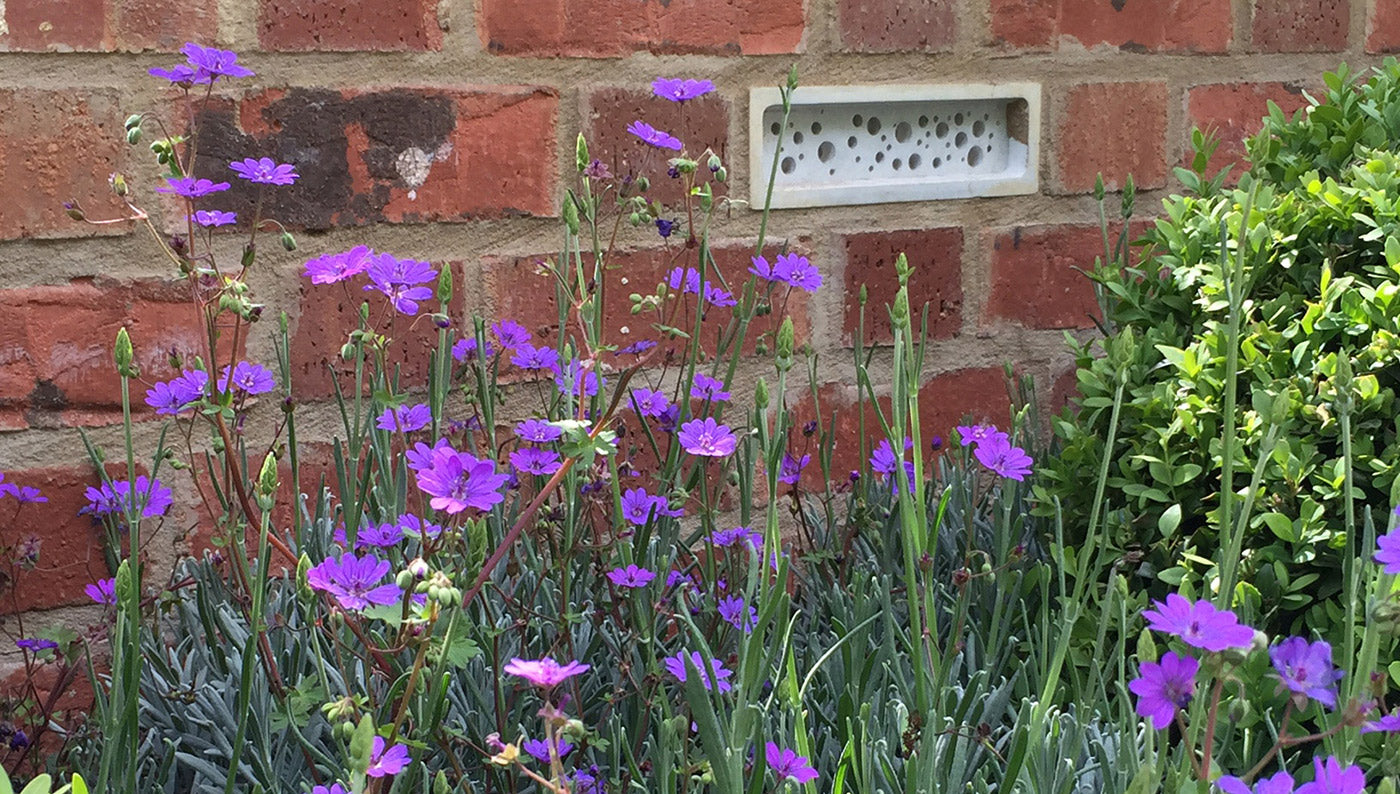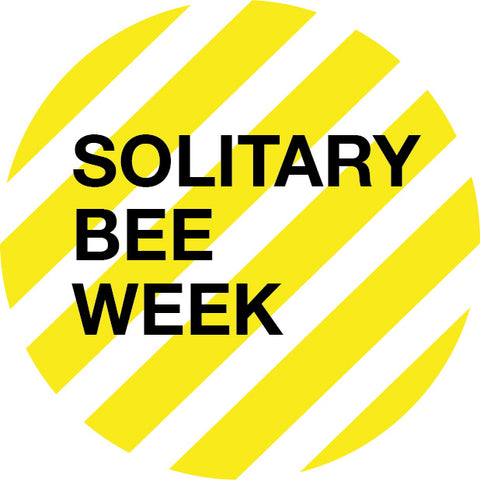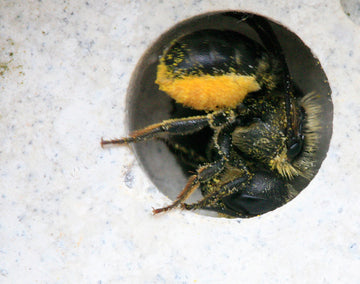5 things you need to know about solitary bees.
1. Solitary bees are different from honey bees and bumble bees.
Solitary bees are not simply bees who have left the hive and are now alone. There are over 200 species of solitary bee and, as the name suggests, they live alone, although in truth they often nest close to one another. They do not produce honey, do not have a queen and do not live in hives.
 2. Pollinators are responsible for around a third of all food we eat.
2. Pollinators are responsible for around a third of all food we eat.
Pollinators, including solitary bees, carry out a vital role in pollinating our crops, and also flowers and trees. In some parts of China pollination is already being undertaken by hand using paintbrushes because there are no bees left to do it naturally. We used to think that honey bees were the biggest contributors to crop pollination but that simply isn't the case today, all types of bees are important. 
3. Solitary bees are non-aggressive.
Because solitary bees do not have a store of honey to protect they are non-aggressive, meaning they are safe around pets and children. The males generally have no sting and the females will only sting if handled roughly or trod on. Perfect therefore to encourage into your garden or allotment or new build development.

4. They have a short, but busy, life cycle.
Generally (across the species) solitary bees emerge from their nests in the spring. Males emerge first and, after feeding, they hang around the nest waiting for the females. Once mating is complete the males die fairly quickly, what a life! After mating the females will begin the process of nesting, selecting a suitable site, constructing the nest and laying anything between 1 and 20 eggs. The eggs will hatch into larvae, which feed on pollen and nectar that the female has stored within each nest. The larvae develop and pupate, emerging the following spring (or later in the year depending on species) and repeating the cycle.
5. Their habitat is under increasing threat.
There are many factors in declining solitary bee numbers, including increased use of chemicals in farming, fewer wildflower meadows, and less suitable habitat. As fields become bigger we lose more hedgerows, which used to provide ample homes to a wide range of wildlife. Also as we build more and more properties and landscape our gardens we unwittingly destroy habitat and nests as we do so. We developed the bee brick as a means of increasing consideration for the habitat of cavity-nesting solitary bees, by creating a possible nesting site for them in each new development, garden or wall.

Solitary Bee Week
If you'd like to know more about Solitary Bees or fancy helping us spread the word about these brilliant pollinators then check out Solitary Bee Week, a week of action and awareness we organised to raise awareness of these 'other' bees.



41 comments
Hi
Just wondering do solitaire bees make holes in trees that have been topped to about six feet from the ground also have a solitaire box on it ?
Thanks Garry.
Hi ,although I understand the importance of bees , we have had lawn bees the last 4 yrs but this year was horrendous , we must have 2 million on our lawn and I know they won’t hurt you but we couldnt use our garden for 6 six weeks because of the volume , but what can I do to stop them ? as I am I right in saying there will be even more next year from them laying their eggs ? Thank you for your help
Hi
Earlier this Spring, I had about 35 – 40 solitary bee (Leaf cutters) cocoons, 90% or more which hatched. I cleaned out the bee house, but so far, apart from a couple of filled holes, there are no bee cocoons. I am surprised, seeing as last year I had loads. Why might this be?
Hi: I notice very few or no response to comments, so maybe the folks asking questions should make their descriptions more useful, such as noting the size and coloration of the bees they ask about. In many inquiries, it seems the subject might be a carpenter bee, a species that seeks out holes in old wood to secure its larvae or to build nests.
How about putting info about where to place the bee block in with the product. That would be really helpful as when googling it you get conflicting advice! Thanks